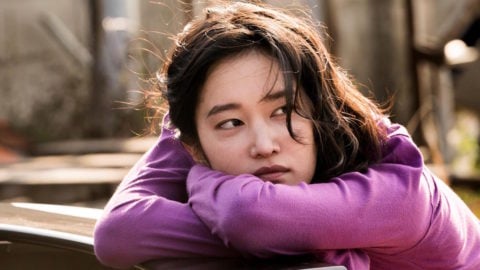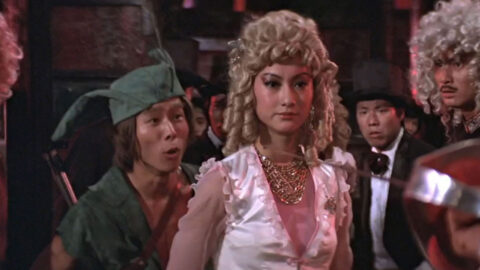By Devika Girish in the September-October 2018 Issue
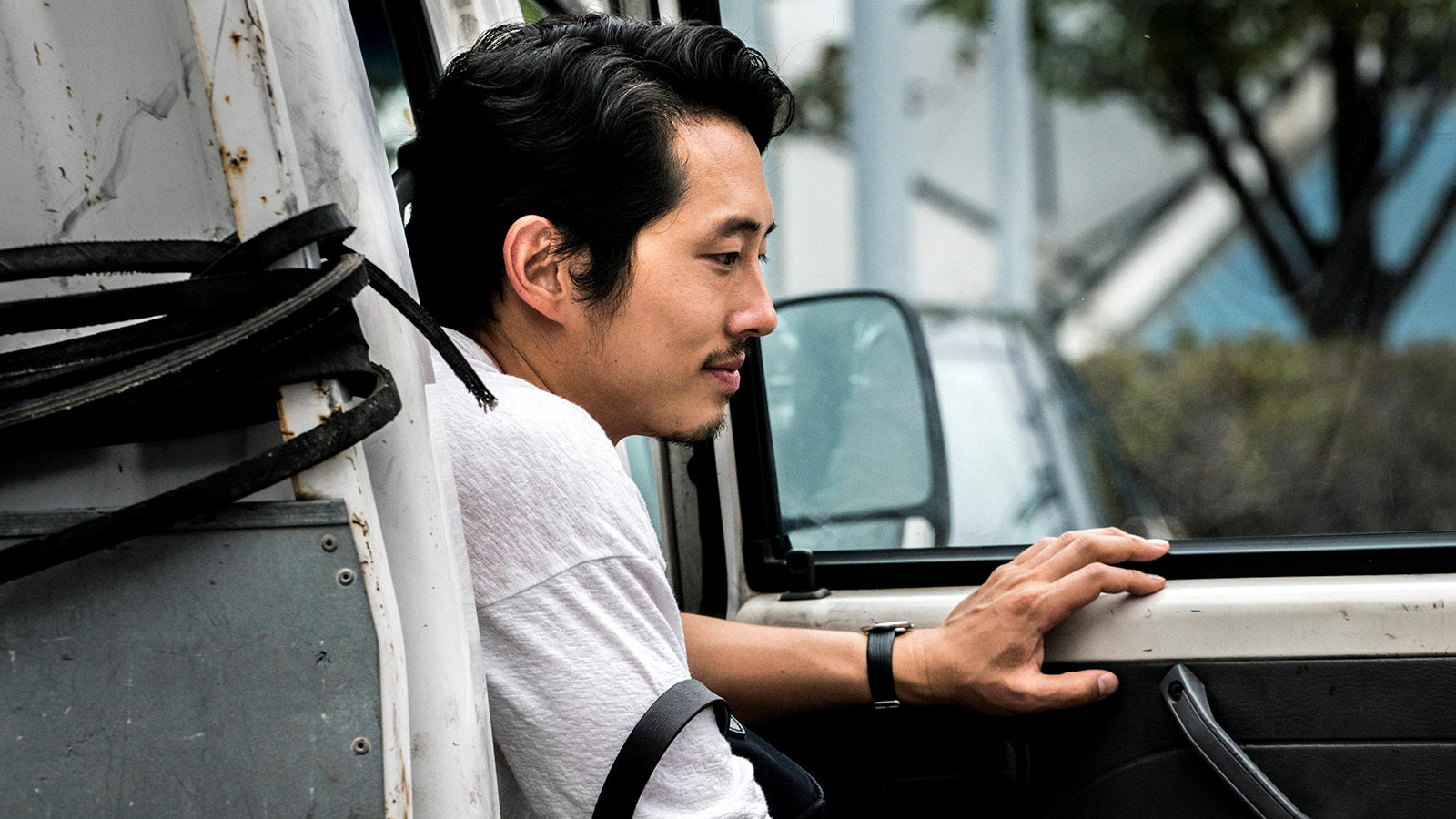
Me Time
Burning star Steven Yeun finds himself anew on screen
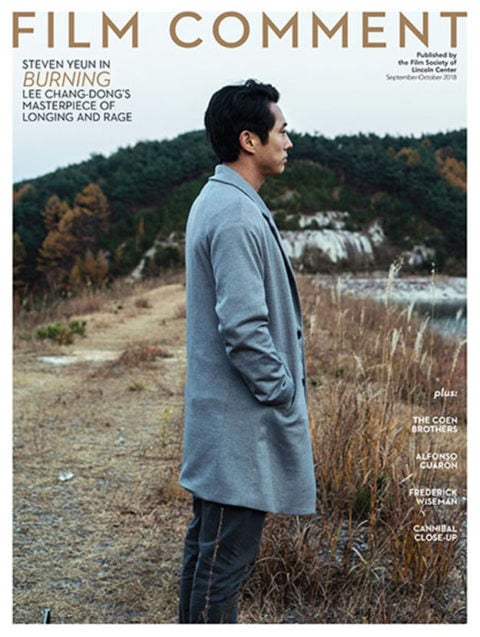
From the September-October 2018 Issue
Also in this issue
The following is an extended version of what appears in the September/October issue.
Since ending his seven-year stint on The Walking Dead, Steven Yeun has established himself as a rising film actor with a fearless, adaptive talent, as demonstrated by his memorable turns in Okja and Sorry to Bother You. Now, with his first Korean leading role in Lee Chang-dong’s Burning, Yeun switches languages (and countries) as effortlessly as he did mediums, delivering what Andrew Chan describes in his feature on Burning—the cover of our September/October 2018 issue—as a “star-making performance.”
“Ambiguity is never sacrificed at the altar of [Lee’s] disdain, which means that his characters don’t get to be anything as basic as passive martyrs or agents of triumph,” Chan writes. “Like most of us, they tend to fall somewhere in between.” Yeun’s performance is central to Burning’s mesmerizing, unyielding ambiguity. As Ben, a Gatsby-esque Seoul playboy who burns down greenhouses as a hobby, Yeun is both instantly recognizable and frustratingly inscrutable, communicating mostly through fine, calibrated gestures—a yawn here, an eye-roll there.
The brilliance of Yeun’s performance derives, partly, from Lee’s decision to cast him—an American actor of Korean descent—in the role of a wealthy, well-traveled Korean. Yeun beautifully channels the gentle dissonance of his presence in the movie into his character’s placeless, rootless cosmopolitanism. As he saunters through the film with a cool, sinister detachment, Ben is always at ease but never at home—a condition that, according to Yeun, perfectly describes the world today.
On an afternoon in early August, Yeun chatted with me on phone about working with Lee Chang-dong, finding his elusive character, and seeking authenticity as a Korean-American actor.
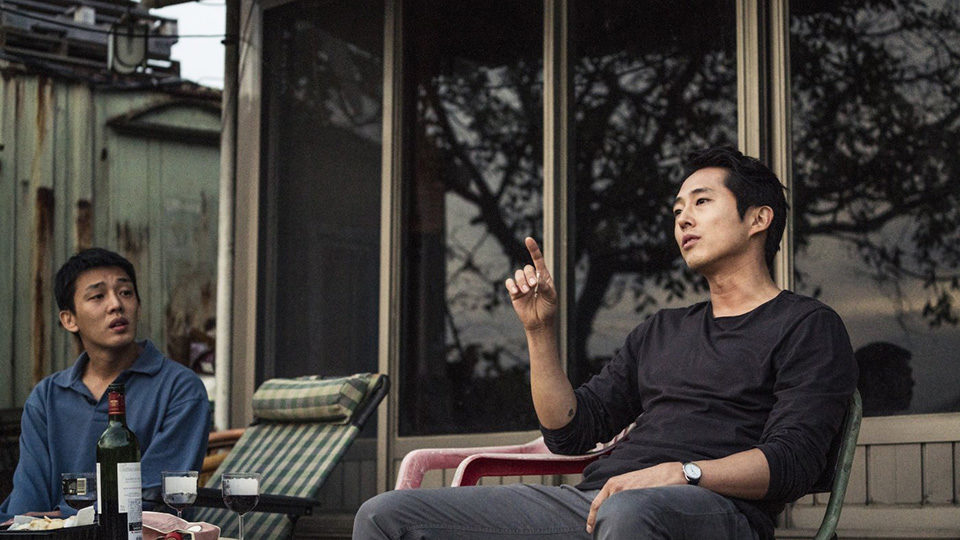
What was it like working with Lee Chang-dong?
Initially, I was just kind of numb to the whole thing, because I couldn’t figure out how I was getting this opportunity. My involvement in this film is nothing short of a miracle. I wasn’t the first choice. The actor who was slated to do it dropped out a month before filming. A couple months prior to that, I was in Korea doing press for Okja, and I said in an interview that I wanted to work with director Lee and that I was a fan. And one of the writers [of Burning], Oh Jung-mi, heard that, and they researched me, and I got a call from director Bong [Joon Ho] saying that director Lee wanted to meet me. I was like, what?! Luckily, I was already headed to Korea at the time—it was all very kismet—and we met for three days straight, and he trusted me. I love that man. I’ve been fortunate to have had a very interesting experience with him.
How so?
The way that Lee shoots—I don’t know if he shot Peppermint Candy [1999] or his other films [in the same way], but this time, he was very off-the-cuff. He followed what the film intended for us to do. There were many times when we would turn a scene out, put it on camera, and he’d watch it and go, “Nah, today’s not the right day.” So we’d break and come back another day, and all of the conditions would be somewhat similar, but then suddenly, a flock of geese would fly over at just the right time, and he’d be like, “That’s what I was looking for!” That was one of the coolest ways to make a film. I don’t know if anyone other than director Lee could replicate that experience.
Your character, Ben, is a classic cipher. Neither the Haruki Murakami story that inspires it nor the film divulge much detail about him. How did you prepare for the role? Do you know who Ben is?
I think I know who Ben is. Director Lee didn’t guide me too specifically. He said, “Let’s pick and choose moments where we can play with how Ben is perceived, but I don’t have any notes for what or who he is.” In fact, I remember him saying, “The mystery at the end is whether you are a murderous psychopath or just a rich person with no morals. And you determine that.” That was incredible for me because I know what Ben did, but nobody else will.
I prepared for the character with a lot of reading: Nietzsche, Schopenhauer, nihilism, that kind of thing. I feel like Ben lives in that world. Someone who has that much money and privilege is playing a totally different game from the rest of society. That’s the approach that I took: what’s a man like when he doesn’t believe in anything? What is he burning for?
That manifests in his body language. There’s a languor to the way he walks, the way he sits.
He thinks everything is meaningless, so he’s not in a rush to get anywhere. He’s just about being there. Why does he have to live? He doesn’t know. He’s just literally not fascinated by anything.
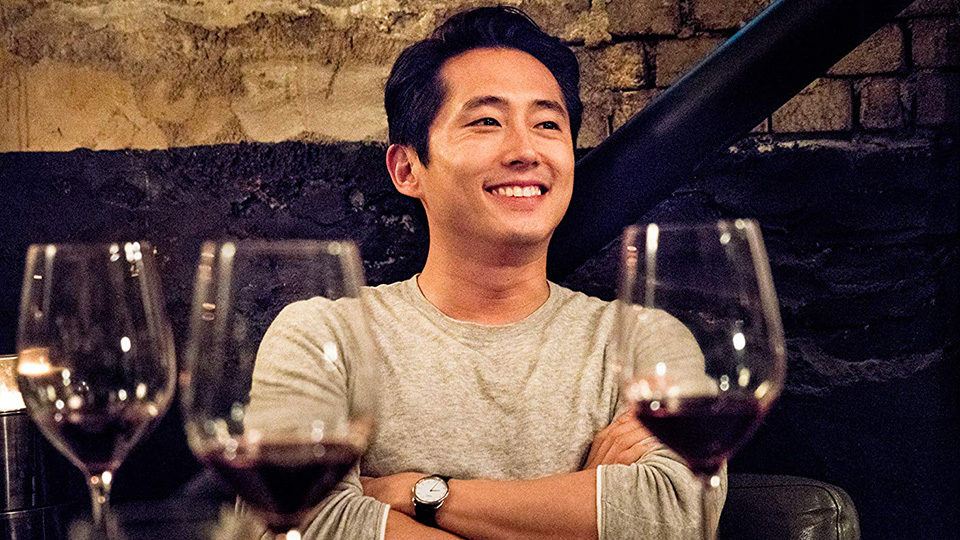
That makes a lot of sense to me, because I came away from the film feeling like Ben wasn’t hiding any secrets; he was just empty, in both a dangerous and a really sad way. That’s what affected me deeply about his character.
I think a lot of people had that resounding feeling. To me, the beauty of a director Lee film is that he holds a mirror up to society and says, “Look at what you look like.” What resounds with me the most [about Burning] is that everybody seems so lonely. Even if you have all the money in the world, you’re still alone. If you watch this film multiple times, you can watch it from three different [character’s] points of view. The common thread that fits all of them is that they’re lonely, and they’re all looking for someone who fills that hole for them. To me, that’s always been the world, but it feels more appropriate to the current world than it has before.
Do you mean the current political and economic world?
Yeah, kind of like where we are on the precipice of how far we want to go into the Internet [laughs]. For director Lee to get me, a non-native Korean actor with very American sensibilities encoded into my body, to be there in the world of the film—it was a genius move, but I feel like it was also appropriate for the film’s themes. In the last couple of years, all the walls and the borders that used to separate us are gone. They’re only there in name and in older structures, but in the minds of the youth, you can live in Portugal and that’s just like living in Brooklyn. And I think the next generation feels very lost, very lonely.
There’s less specificity to where Ben comes from, too—what separates him from the other two characters is that they come from a place, a real place.
For sure. Ben doesn’t necessarily represent America, by any means—or even the Western world—but he represents someone who’s seen the world for what it is, or, has the privilege to have seen a lot of it. And it’s interesting now to look at the West and the East trade ideologies, slowly. You go to Korea and kids these days are trying to find themselves and be themselves and express themselves and “be me.” And over here, in the West, we’ve inherently had that as our general understanding of how to be, and now I feel like we’re trying to find tribes. The Western world is trying to find more collectivism and the East is trying to find more individualism. It’s all about balance. That’s something director Lee and I talked about a lot: balance.
Were you a big fan of Lee’s work before? Had you been following his career?
The first film of his that I saw was Poetry, in 2010. And I remember thinking that the film had a very different feel from the other Korean films I had seen at that time, which were all rooted in that revenge-thriller, moody, dark, gritty aesthetic. And I was just struck by how plain [Poetry] was, how grounded it was, how real, and I remember losing it when I saw the actress who looks like, or represents, my grandmother. You know, I’ve hurt my grandmother in similar ways. It connected me to a place that I’d never thought of before. Prior to that, I had connected to performances or ideas or films in American culture that were always one step adjacent to me, or representative of me from a personality stance, but it wasn’t fully 100 percent.

I was thinking about your role in Okja while watching Burning. Okja zoned in beautifully on the hyphenated nature of your identity. But with Burning, you’re leaning more into your Korean side. Did it feel more authentic?
For some reason, I feel emotional talking about this to you right now, and I have no idea why. But you’re right. I think authenticity comes when something or someone gives you the depth and the breadth to spread your wings as wide as they can possibly go, without having to conform to some kind of social structure. Playing someone who is fully Korean means that I—as an actor, as Steven—get to play a character. I’m not playing a hyphenate where I have to explain my character as an actor and as an Asian person. I’m just the character. And that inherently gave me no boundaries.
And then to play someone with the outlook on life that Ben has, that also gave me no boundaries. It was very authentic. My wife didn’t have the greatest of times for the four to five months I was shooting that, though. [Laughs] When you’re thinking of the world as Ben does, and nihilism is your focus, your energy changes.
Your Korean-American identity is not made explicit in Sorry to Bother You, but I thought there was still something significant about placing an Asian character within the film’s context of race and class in America.
One of the things that I was very conscious about and that I discussed with Boots [Riley] was just a general recognition of where an East Asian person sits in American society. Everyone wants to incorporate every minority into a giant glob and say, hey, we’re all oppressed, so let’s all come together. That’s the greater mission, of course, but at the same time, East Asian people have to actively acknowledge their privilege. You don’t get killed on the street, you don’t get turned down from jobs in the same way. It’s a whole different ball game. There’s oppression in a multitude of ways, and if you acknowledge that, then you can start from a place of truth. That’s how I approached Sorry to Bother You. I didn’t want to overstay, or overshoot. I liked the fact that [my character] Squeeze was a union organizer, because he just facilitates things in the background. I would sometimes say to Boots, I don’t think I even need to be in this frame, can I just step out? That’s probably not a smart way to be an actor in this business, but it felt appropriate.
You were almost like an everyman character, which I’d say is against type for Asian roles.
Yeah, I agree. That’s kind of also what I had been playing on The Walking Dead for seven years. But [Squeeze] was partly everyman, partly: know where you need to be seen, and know where you don’t. That works incongruously within Sorry to Bother You, which is all about: be loud, be proud, be assertive, be you. With my character, it was: be you, but be low-key you. That was my approach. There were memorable moments that people really like about Squeeze, but I don’t think he’s someone where you go, “I remember that character outright, for sure, because he did these things.”
I actually did find your character memorable. Maybe not in the way that Cassius and Detroit are memorable, but as a representation of what a real union organizer would be like. I think Squeeze is a grounding influence in the film, because otherwise it’s easy to get swept up in the fantasy of it all.
I’m glad you picked up on that. That’s what I wanted to accomplish. For sure.
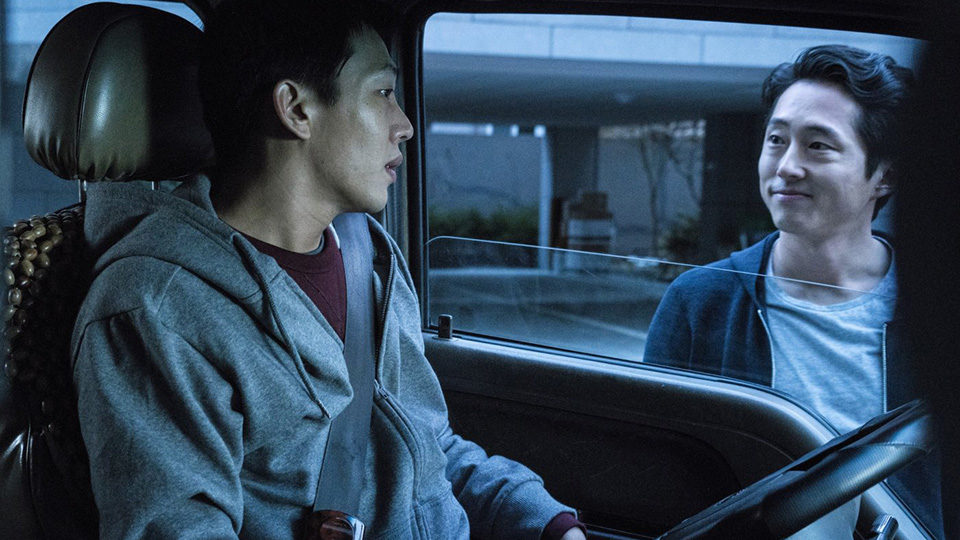
I sometimes wonder, though, if the discourse around representation in American cinema is a bit myopic, because it doesn’t always acknowledge the fact that there are other cinemas and whole other vibrant film cultures out there. You’ve been talked about a lot in terms of your identity here, as the new “Asian leading man.” I wonder if you now being in a Lee Chang-dong film is going make people pay attention to the fact that diversity doesn’t just have to mean diversity in American film, but also diversity in the film cultures we consume.
Absolutely. I think that’s why I felt so privileged to be a part of Burning, and that’s why the timing felt so right for director Lee to make this film. As we approach a more cosmopolitan world, it’s only appropriate to not be so egotistical—to not think that your film community is the only film community, that your experiences and the way that you digest culture are the only ways to experience those things. The identity conversation I have here can sometimes be exhausting. Not because I don’t think it’s important, but because I feel like it’s so centered on a United States identity. I think we can get past even that, and not even say, “I’m Korean, so I can have an identity in Korea,” but say, “I’m me, and I can just be me, wherever I am.” And if I want to be cosmopolitan, and be someone who wants to live in a global world, then I should have the grace to study up on what these other cultures stand for.
Those are the lessons that I learnt, working back-and-forth in Korea. And I didn’t think that I was going to do that. I thought that I was just going to carve out a career over here, in the States—and I still do. I feel more natural here. But sometimes the spaces that they let you inhabit here aren’t as wide and open as they are where you’re not bogged down by the conversation of whether or not you can be a role because of the face that you wear. There are psychopaths everywhere, but why can I only play a psychopath in Korea?
What kind of roles are you looking for next? I read that you’re quite selective.
Is that common knowledge now? Oh no! [Laughs] I’ve been lucky to have a little bit of a cushion in my life. Being on a big show is great—it means that I can make these slower decisions. You know, after leaving The Walking Dead, I just worked nonstop for about two to three years. We just had a kid, so it’s been nice to be at home, for now.
You said that you talked about wanting to work with Lee Chang-dong in an interview and then you got the role. So is there a name you want to mention in this interview—a dream director?
Oh my goodness, there’s so many. I love Denis Villeneuve’s visuals, and I’d love to play in that space. I’d also love to work with director Park [Chan-wook]. I could sit here and list a bunch of directors that I want to work with, but… I guess I’m looking for the thing that feels right. And I’m just being Dad right now!
Closer Look: Burning screens in the New York Film Festival and opens on October 26.
Devika Girish is a freelance film critic. She grew up in India and currently lives in Los Angeles.



